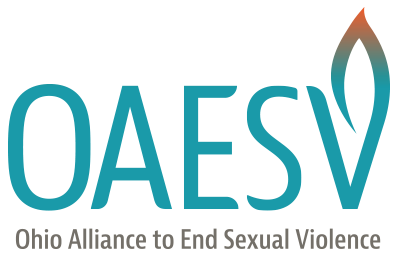
Wednesday is filled with some amazing, restorative plenary sessions as well as connection opportunities in affinity groups & learning sessions. If you registered for affinity groups, the links to join the sessions will be emailed to you separately.
Affinity Groups are for people who identify as part of the communities listed in the titles. For any given affinity group, if you don’t identify as part of the community that is listed, you should not attend that affinity group meeting. Instead, we would invite you to participate in the Learning Session happening simultaneously. Information on joining Learning Sessions will be offered later. Please note affinity group links will be email separately and will not be included on the main event pages. This is for privacy.
Learning Sessions are for everyone who wishes to learn about the community listed.
- 9:00 am - 9:30 am - Opening Session
- 9:30 am - 10:30 am - Affinity Groups
- 10:30 am - 10:45 pm - Break
- 10:45 am - 11:45 am - Affinity Groups & Learning Sessions
- 11:45 am - 12:45 pm - Lunch
- 12:45 pm - 1:45 pm - Affinity Groups & Learning Sessions
- 1:45 pm - 2:00 pm - Break
- 2:00 pm - 3:00 pm - Affinity Groups & Learning Sessions
- 3:00 pm - 3:15 pm - Break
- 3:15 pm - 5:00 pm - Plenary & Closing Session
Land Acknowledgement Information
Land acknowledgements are recognition of the Native American/First Nations/Indigenous Peoples and their ancestral and contemporary land, prior to their forced removal. In speaking these acknowledgements, it is necessary to explore the current impact of colonization and systemic oppression on Indigenous Peoples; colonization is an ongoing process and we are present participants on stolen land.
There are currently no federally recognized Native American and Indigenous tribes in the State of Ohio, but a number of tribal nations in Oklahoma, Wisconsin, Michigan, North Dakota and Minnesota have ancestral connections to Ohio land. Among the Historic Indigenous Tribes in Ohio were the Shawnee Tribe, the Chippewa Tribe, the Ojibwa (Oh-jib-way) Tribe, the Delaware Tribe, the Wyandot Tribe, the Eel River Tribe, the Kaskaskia Tribe, the Iroquois Tribe, the Miami Tribe, the Munsee Tribe, the Seneca-Cayuga Tribe, the Ottawa Tribe, the Piankashaw Tribe, the Sauk Tribe, the Potawatomi Tribe, the Seneca Tribe, and the Wea (Wee) Tribe. We stand in solidarity with the Indigenous Peoples who are the traditional stewards of this land and water. We acknowledge the history of oppression and genocide that brought us here, and our place within that history. We honor the Indigenous Peoples who lived and cared for the land before us, the Indigenous Peoples who reside in Ohio today, and the generations to come.
As we gather this week to restore our roots in accountability and transformative justice, we must reflect on the connection between sexual violence as a tool of colonialism, and of oppression, that continues to this day. There is an epidemic of missing and murdered Indigenous women and girls with deep, intersectional roots including white supremacy and misogyny. Land acknowledgements are also a call to action: What will you commit to doing and learning today? How will you sustain this work? Please reflect on what this land acknowledgement means to you, and find ways to support Indigenous organizations in Ohio.
Orgs:
- Cleveland American Indian Movement
- Lake Erie Native American Council
- Myaamia Center through Miami University
- The Greater Cincinnati Native American Coalition
- The Miami Valley Council for Native Americans
- The Native American Indian Center of Central Ohio
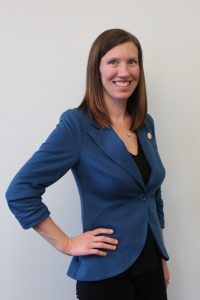
Kelly Becker, OAESV Director of Programming
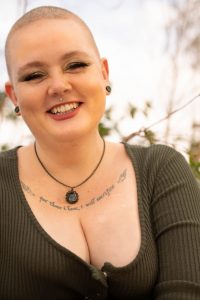
Kasie Holmes, Registered Mental Health Counseling Intern & Founder of Radical and Restorative Therapy
Some of the affinity groups will take place during this session. If you registered for affinity groups, please check your email for instructions on how to join. We will not be sharing details about affinity groups widely, to preserve privacy.
Some of the affinity groups will take place during this session. If you registered for affinity groups, please check your email for instructions on how to join. We will not be sharing details about affinity groups widely, to preserve privacy.
Join a discussion about effective and equitable services for queer and transgender survivors.
Some of the affinity groups will take place during this session. If you registered for affinity groups, please check your email for instructions on how to join. We will not be sharing details about affinity groups widely, to preserve privacy.
Join a discussion about effective and equitable services for survivors with disabilities.
Some of the affinity groups will take place during this session. If you registered for affinity groups, please check your email for instructions on how to join. We will not be sharing details about affinity groups widely, to preserve privacy.
Join a discussion about effective and equitable services for immigrant survivors.
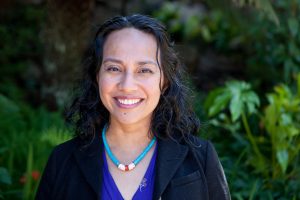 Aparna Shah has worked to build community power grounded in shared purpose, love, and liberation for over 25 years. She is Principal at Samaja Sadya Consulting, which cultivates cultural strategy and embodied practice with teams, institutions, and networks catalyzing transformative governance. Previously Aparna was Co-Executive Director of Power California (formerly Mobilize the Immigrant Vote). During her decade long tenure, PowerCA/MIV organized statewide campaigns reaching 500,000+ young, immigrant, and refugee voters of color and Indigenous voters, built the long-term infrastructure and capacity of grassroots multiracial and intergenerational organizations across the state to run electoral and issue campaigns, and established a sister organization, PowerCA Action (formerly MIV Action Fund). She has also worked to advance the self-determination and reproductive justice of women, people of color, and queer communities and spent several years working to transform a public middle school into a vibrant youth and community center in San Francisco’s Mission District. Aparna currently sits on the Board of 18 Million Rising and holds a Master of Health Sciences degree from Johns Hopkins School of Public Health. She was born in Manila, grew up in Mumbai, and lives with her family on unceded Ohlone land also known as Oakland, California.
Aparna Shah has worked to build community power grounded in shared purpose, love, and liberation for over 25 years. She is Principal at Samaja Sadya Consulting, which cultivates cultural strategy and embodied practice with teams, institutions, and networks catalyzing transformative governance. Previously Aparna was Co-Executive Director of Power California (formerly Mobilize the Immigrant Vote). During her decade long tenure, PowerCA/MIV organized statewide campaigns reaching 500,000+ young, immigrant, and refugee voters of color and Indigenous voters, built the long-term infrastructure and capacity of grassroots multiracial and intergenerational organizations across the state to run electoral and issue campaigns, and established a sister organization, PowerCA Action (formerly MIV Action Fund). She has also worked to advance the self-determination and reproductive justice of women, people of color, and queer communities and spent several years working to transform a public middle school into a vibrant youth and community center in San Francisco’s Mission District. Aparna currently sits on the Board of 18 Million Rising and holds a Master of Health Sciences degree from Johns Hopkins School of Public Health. She was born in Manila, grew up in Mumbai, and lives with her family on unceded Ohlone land also known as Oakland, California.
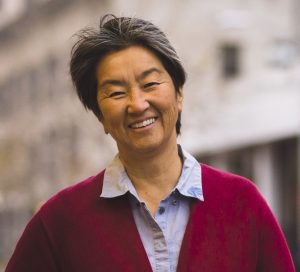 Nan Stoops has worked in the anti-violence movement as an advocate, trainer, and organizer for more than 40 years. She is a Strategic Advisor of the Washington State Coalition Against Domestic Violence (WSCADV), where she served as the Executive Director for 17 years. WSCADV is a non-profit organization that works on behalf of nearly 70 community-based domestic violence advocacy agencies to create a world where all people can live and love freely without fear.
Nan Stoops has worked in the anti-violence movement as an advocate, trainer, and organizer for more than 40 years. She is a Strategic Advisor of the Washington State Coalition Against Domestic Violence (WSCADV), where she served as the Executive Director for 17 years. WSCADV is a non-profit organization that works on behalf of nearly 70 community-based domestic violence advocacy agencies to create a world where all people can live and love freely without fear.
Before coming to WSCADV in 1998, Nan was the Associate Director of the Faith Trust Institute, a national organization that mobilizes religious leaders and communities to address sexual and domestic violence. She was also a founding member of INCITE! Women of Color Against Violence, is a past board chair of the National Network to End Domestic Violence, and has served on numerous boards and advisory groups.
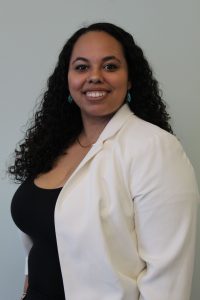
Olivia Montgomery, OAESV Training & Technical Assistance Coordinator for Inclusion & Equity
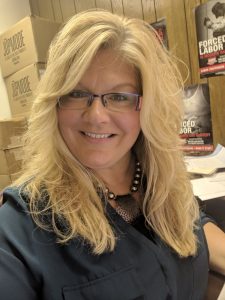
Amy LeGesse, OAESV Board Member
Funding for this conference was made possible in part by the Centers for Disease Control and Prevention as well as by the Rape Crisis Funding awarded by the Ohio Governor’s office, administered by the Ohio Attorney General’s Office. The views expressed in written conference materials or publications and by speakers or moderators do not necessarily reflect the official policies of the Department of Health and Human Services or of the Ohio Attorney General’s Office; nor does mention of trade names, commercial practices, or organizations imply endorsement by the U.S. Government.
